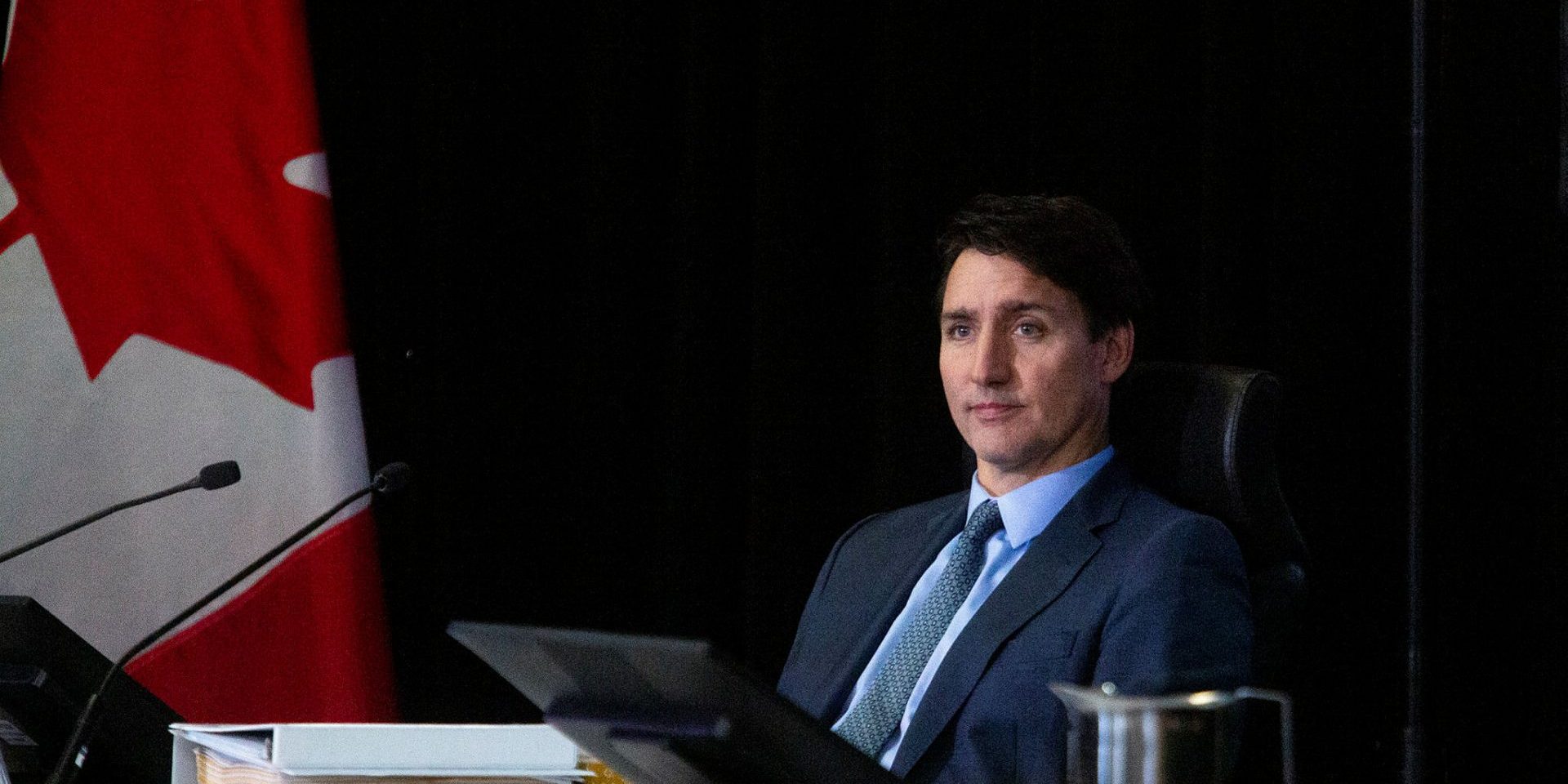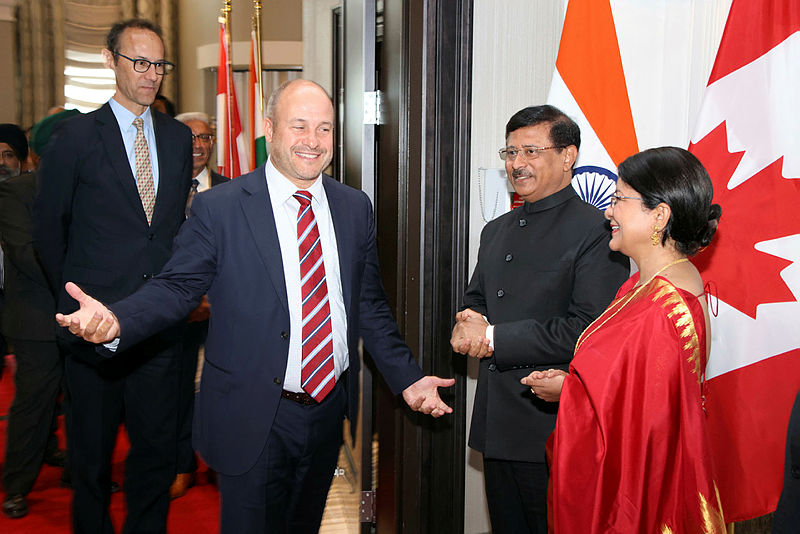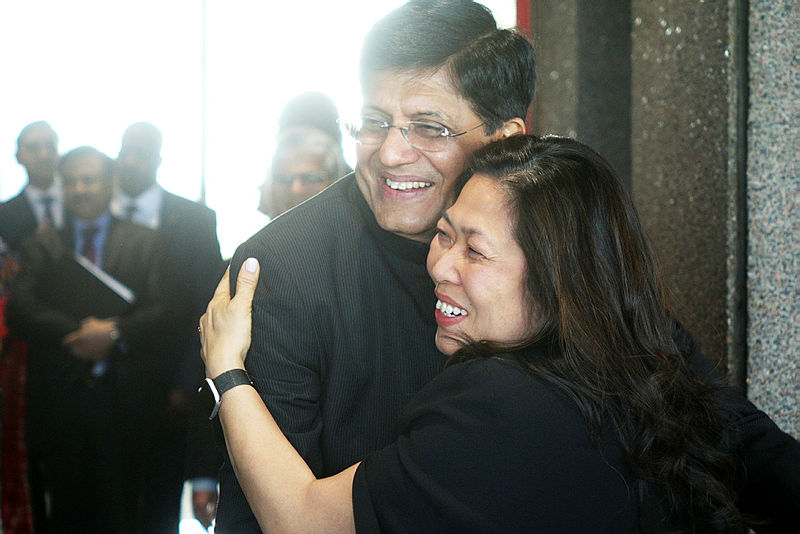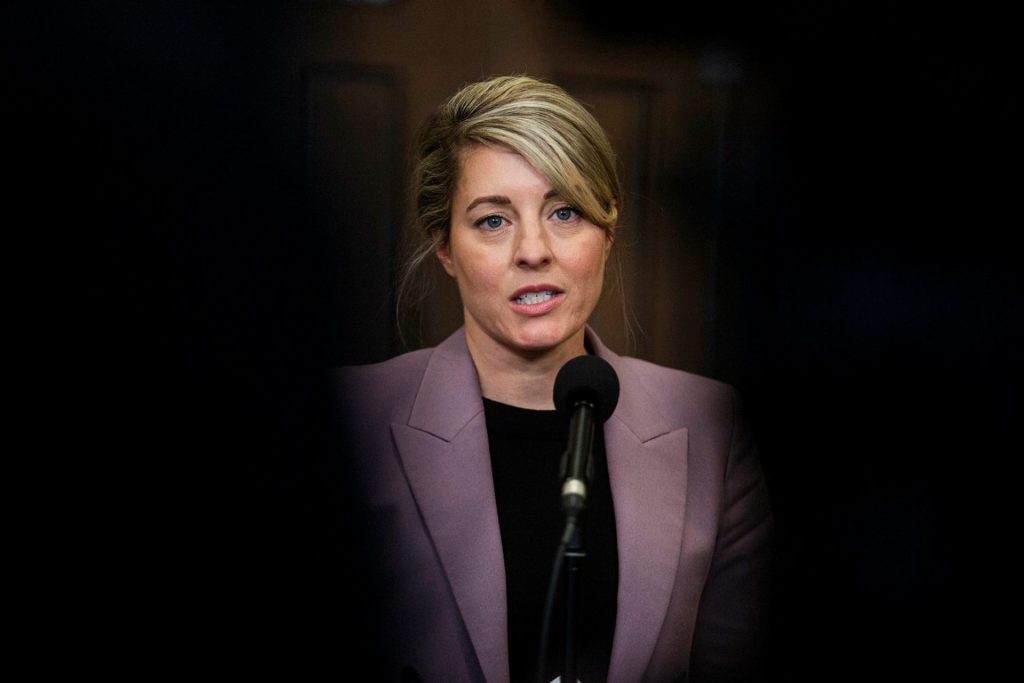‘Extremely strained’ Canada-India diplomatic ties unlikely to improve under Trudeau government, says analyst

After another round of tit-for-tat diplomatic expulsions, the Canada-India diplomatic relationship “virtually has collapsed,” say foreign policy observers, with little room for improvement amid Indian officials’ alleged involvement in “widespread violence” on Canadian soil.
The new low in Ottawa-New Delhi ties raises questions about the implementation of the Indo-Pacific strategy, which placed India as a focal point for Canada’s engagement in the region.
“India has made it very clear [that] it sees this dispute very much as something initiated by Prime Minister [Justin] Trudeau and his government—so they have personalized it in some ways—which leads me to believe that, as long as we have the current government in Ottawa, it is unlikely that we see a change in the diplomatic relationship,” said Vina Nadjibulla, vice-president of research and strategy at the Asia Pacific Foundation of Canada.
Foreign Affairs Minister Mélanie Joly (Ahuntsic–Cartierville, Que.) announced on Oct. 14 that six Indian diplomats, including High Commissioner Sanjay Kumar Verma, were being kicked out of Canada. In turn, India expelled six Canadian diplomats, including deputy high commissioner and chargé d’affaires Stewart Wheeler.
The expulsions came after the RCMP alleged that Indian government officials were tied to “homicides and violent acts” in Canada.
Verma told CTV News that Canada is relying on intelligence and not evidence to link Indian officials to violent crimes in Canada.
“On the basis of intelligence, if you want to destroy a relationship, be my guest,” the outgoing envoy said during an interview that aired Oct. 24. “That’s what he [the Canadian prime minister] did.”
He added that the Canadian action is “politically motivated.”
Previously in 2023, Canada expelled a lone Indian diplomat, and India responded by expelling a single Canadian official after Prime Minister Justin Trudeau (Papineau, Que.) accused the Indian government of involvement in the assassination of Khalistan separatist leader Hardeep Singh Nijjar that same year.
Later in 2023, India ordered 41 of 62 Canadian diplomats in India to leave or risk losing diplomatic protections as they argued that more Canadian diplomats were accredited to India than Indian diplomats were in Canada.
The removal of another six Canadian diplomats brings the operations of Canada’s missions in India to an even further skeleton crew.

David McKinnon, a retired career diplomat in the Canadian foreign service who was posted to New Delhi from 2004 to 2009, said the reduction in diplomats in both India and Canada is “unfortunate.”
McKinnon said what is needed is for the two countries to talk to each other.
“More than anything, what’s needed is some engagement and understanding,” he said. “We need people in Delhi who can do their jobs and help explain Canada’s position to India, but also help explain India to decision-makers in Ottawa and vice versa [with the] Indian mission here.”
“I understand why we felt the need for [the expulsions] to happen, but it [raises questions of] how do you go back from that? How do you rebuild?”
McKinnon said there will be limitations in engagements between high commissions and foreign ministries with the reduction in diplomatic staff.
Nadjibulla described the diplomatic relationship between Canada and India as “extremely strained,” and that it “virtually has collapsed.”
“I think we have to have modest expectations for the next few months to a year,” she said. “I don’t believe we’ll see major changes or any improvements at the government-to-government diplomatic relationship.”
She said she doesn’t expect that new high commissioners will be named to replace the expelled ones any time soon.
At the same time, the Canadian government has indicated that it wants to maintain the status quo in its economic relationship with India.
International Trade Minister Mary Ng (Markham–Thornhill, Ont.) said in an Oct. 14 statement that the Canadian government is “fully committed to supporting the well-established commercial ties between Canada and India.”
“However, we must consider our economic interests with the need to protect Canadians and uphold the rule of law,” she said in a statement posted to X.
Canada suspended trade talks with India in September 2023, four months after Ng welcomed Indian Industry and Commerce Minister Piyush Goyal with a hug, and the two sides pledged that progress was being made towards an Early Progress Trade Agreement.

Nadjibulla said it remains to be seen whether the economic relationship can be kept separate from the diplomatic impasse.
She said that will depend on what else emerges from the RCMP investigation or parliamentary hearings.
“If there are any other actions taken like sanctions or any other actions on the Canadian side then there will likely be further impact on the commercial relationship and people-to-people ties,” she said.
Nadjibulla said much will also depend on how the criminal proceedings in the United States play out, in which there are allegations that Indian officials are linked to an assassination plot against a Sikh separatist leader.
‘Treading water’ until RCMP investigations conclude, says expert
Toronto Metropolitan University associate professor Sanjay Ruparelia, an expert on Indian politics, said the diplomatic spat between Canada and India is unlikely to heal until the RCMP concludes its investigations and charges are laid.
In the meantime, Canada and India have competing claims about whether evidence has been shared with the other.
“We have two mutually exclusive claims that are impossible to reconcile,” he said.
Ruparelia said it’s hard to understand how other elements of the relationship can move forward until the “elephant in the room” is dealt with.

“Long-standing aspirations to forge trade and investment opportunities, for instance, are in a complete standstill until this issue is addressed and resolved in a way that’s satisfactory to both countries,” he said.
He said it is hard to see a pathway forward for the two countries in the current moment.
“We’re sort of treading water,” he said of Canada’s ongoing commercial relationship with India and student exchanges, “given the gravity of the allegations being made.”
Does the spat alter Canada’s Indo-Pacific outlook?
Nadjibulla said the analysis of India’s importance in the Indo-Pacific region that underpinned Canada’s strategy for the region hasn’t changed.
“The reality is that India is a rising global power and a regional power, and it is significant in the strategic balancing of China’s rise,” she said.
She said that Canada’s Indo-Pacific strategy is still relevant despite the difficulties with India, as it needs increased engagement with Southeast Asia, and with Japan and South Korea.
“India continues to be an important player in the region, and if Canada wants to engage in the region, we have to navigate and manage that dynamic,” Nadjibulla said.
With the diplomatic relationship unlikely to improve in the near term, it places greater importance on the economic and people-to-people relationship, she said, remarking that they are more important than they’ve ever been.
McKinnon said it’s problematic that the two major players in the region are countries with which Canada currently has poor diplomatic relationships.
“That’s an issue,” he said, adding that more focus must be put into developing Canadian competencies to better understand the region.
“India is a major player, and we need to understand it better,” he said.
nmoss@hilltimes.com
The Hill Times






 LICENSING
LICENSING PODCAST
PODCAST ALERTS
ALERTS













